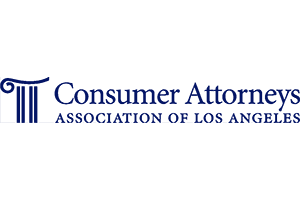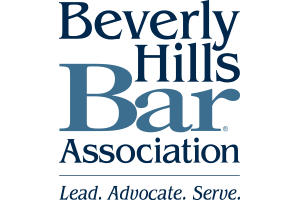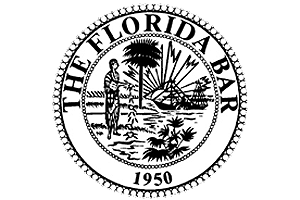In Southern and Northern California
FAQs
At the Sharifi Firm, APC, our knowledgeable Los Angeles personal injury lawyers hear variations on certain questions quite often. It is usually better to consult an experienced attorney with the specific facts of your case than rely on general information you can find online. One of our attorneys would be happy to give you a free, no-obligation consultation about your particular case. Below are our answers to FAQs about personal injuries in Los Angeles and surrounding areas.
Every motor vehicle case is different. In general, if the other driver broke a law that caused the accident in which you suffered injuries, you probably have a case. For example, if the other driver ran a red light, ran a stop sign, failed to yield when you had the right of way, or made an illegal U-turn into the street where you were turning right, you probably have a claim for damages. However, there may be circumstances that reduce your recovery, and the other driver may not be truthful about what happened. It helps to have a police report citing the other driver. In complex cases where it seems the other driver is lying or neither of you remember what happened, we can retain an accident reconstruction specialist that can pinpoint the cause of the accident.
Premises liability cases are challenging. In general, all property owners or occupiers owe a duty to keep the property reasonably safe for visitors. However, no duty is owed to undiscovered trespassers. Retails stores, restaurants and other businesses that invite customers onto their property owe the highest degree of care to customers. The government owes a duty to keep public roads and spaces reasonably safe as well, but there may be limits to their liability and a shortened window of time within which to bring a suit. You should consult an experienced premises liability attorney to determine whether you have a viable claim.
If possible, you should document your injuries and property damage by taking photographs and asking witnesses what they saw. You should ask witnesses for their names and phone numbers. In the case of a motor vehicle accident that you believe was someone else’s fault, you should contact the police, so that they can cite the person and provide further eyewitness testimony. In a slip and fall accident, or when you’re injured because of dangerous conditions on someone else’s property, you should take photographs of the condition that caused the accident, whether it’s a liquid spill or a defect in the property.
Punitive damages are awarded to punish the defendant and deter future similar conduct. It is rare that someone recovers punitive damages in a personal injury case because in most cases, injury is caused by carelessness, rather than egregiously reckless conduct or maliciousness. However, in certain cases, such as a motor vehicle accident case involving a drunk driver, or an instance when a corporation actually knows of a dangerous property condition but does not post a warning, or a case brought under California’s Elder Abuse and Dependent Adult Civil Protection Act, punitive damages may be warranted.
You should ask your parent if anything is happening. In some cases, a parent is too embarrassed to reveal abuse or does not have the mental capacity to appreciate that abuse is occurring. If you do not believe your parent is capable of understanding that he or she is being abused, you should also ask roommates and staff for explanations regarding any suspicious ailments, such as bruises, fractures or bedsores. You should contact an experienced elder abuse attorney to determine the remedies available in your particular case.
Any elder abuse should be reported to the appropriate agency so that it can be investigated and stopped. For example, The Ombudsman’s Office administered by the California Department of Aging investigates abuse at nursing homes. Adult Protective Services for the elder’s county investigates elder abuse reports for those who live in hospitals and health clinics when the alleged abuser isn’t a staff member. The California Department of Health Services (DHCS), Licensing and Certification, investigates abuse by a member of a hospital or health clinic.
In most cases, no. Employers are required to carry workers’ compensation insurance. An employee’s exclusive remedy is a workers’ compensation claim for benefits. However, independent contractors can sue the business that pays them for their work if the business was negligent. An employer that fails to procure workers’ compensation insurance can be sued in civil court and negligence will be presumed.
Whether or not it is worth it to bring a personal injury suit depends on the degree of harm you suffered and how much to blame the other party is. If you suffered some minor scrapes and bruises because of a cracked sidewalk, it probably wouldn’t be worth the time and effort to sue your friend, even though this is what homeowners’ insurance is for. However, if you had to get medical care or miss work because your neighbor’s dog bit you or because your foot was mangled in a broken escalator at the local mall, it probably is worthwhile to file a personal injury suit.
How much you can recover is highly fact-specific and depends on many factors such as liability and the severity of your injuries. Some factors are out of your control, such as the individual adjustor for your case and the composition of the jury, but a skilled personal injury attorney with a strong reputation in the community might help tip the factors in your favor. In cases where liability can be established against a defendant, you can recover your out-of-pocket expenses, plus general damages for your pain and suffering.
In California, unless a jury finds you wholly responsible for an accident, you will be able to recover damages minus your proportion of fault. California follows the doctrine of pure comparative negligence. This means the jury will determine the total damages and then assign percentages of fault for each party that is alleged to be at fault based on the evidence. For example, if a jury finds the damages are $100,000 and you are 25% at fault, you can recover $75,000 from the other party, assuming the other party is solvent or insured. Most cases settle before trial, which means that the other party’s insurer will argue that because you’re partially to blame, you should recover less. Attorneys for both parties negotiate based on their past experience of similar cases.
Consult an Experienced Personal Injury Attorney in Los Angeles About Your Case
If you are seriously injured or a loved one has been killed in Los Angeles or elsewhere due to someone else’s negligence, our personal injury lawyers can represent you to recover damages. We represent accident victims and their families in San Bernardino, Rancho Cucamonga, and Temecula. Contact us at (866) 422-7222 or via our online form to get a free, no-obligation consultation about your particular case, which will be more tailored than the responses to the general FAQs above.







